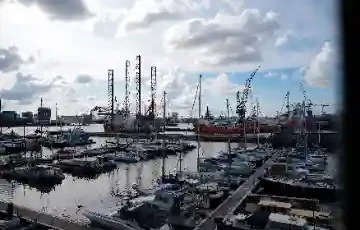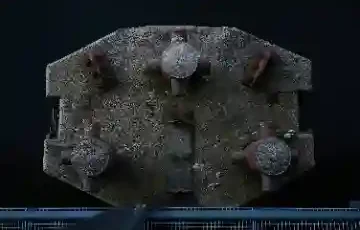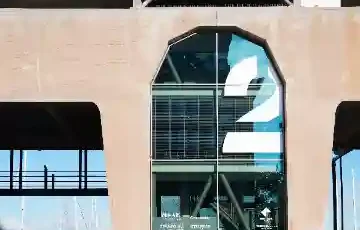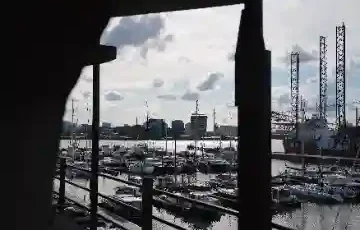You enforce trademark rights by taking active legal action against unauthorized use of your registered trademark through cease-and-desist letters, attachment proceedings, and preliminary injunction procedures. The trademark holder has exclusive rights to prevent others from using the mark for identical or similar products according to the Benelux Convention on Intellectual Property.
Trademark rights arise exclusively through registration in an official trademark register. Protection applies for a period of 10 years, which you can renew indefinitely. Without active enforcement, your trademark rights remain valid, but you may lose market position to competitors who misuse your mark. Effective enforcement begins with systematic trademark monitoring and culminates in legal action against infringers.
What conditions apply for trademark enforcement under Dutch law?
For successful trademark enforcement, you need a valid trademark registration with distinctive character that demonstrates actual use for the registered products or services. After demonstrable non-use for five consecutive years, a third party can invoke cancellation of your trademark rights.
The trademark registration forms your legal basis for enforcement. The Benelux Office for Intellectual Property (BOIP) registers trademarks collectively for the Netherlands, Belgium, and Luxembourg. A registration exclusively for the Netherlands does not exist. Your trademark must possess sufficient distinctiveness to obtain registration. BOIP rejects descriptive terms such as “bicycle” for a bicycle brand, whereby you forfeit the application fees.
Moreover, you must demonstrate active use of the trademark. A security manufacturer from Amsterdam lost trademark rights in 2024 because the company could not prove use for the registered product categories during eight years. The District Court declared the trademark lapsed, which freed competitors to use the sign.
Always check the trademark register for existing identical or similar trademarks before registration. Also search the Trade Register and online for trade names that conflict with your trademark. This due diligence prevents costly legal disputes with prior trademark rights.
What registration options exist for trademark protection in the Netherlands?
You can choose between a Benelux trademark registration (Netherlands, Belgium, Luxembourg), a Union trademark for all 27 EU countries, or an international registration via the Madrid system offering protection in 75 affiliated countries. Each territory requires a separate application with specific costs.
A Benelux trademark registration through BOIP costs from € 249 for one product class. For each additional class, you pay € 50. The registration provides protection where you operate actively in the Benelux countries. This option works efficiently for entrepreneurs who primarily serve local markets.
You register the Union trademark with the European Union Intellectual Property Office (EUIPO). With one application, you obtain protection in all EU member states. This European trademark registration prevents filing 27 national applications. For cross-border trade within Europe, this saves substantial registration costs and administrative burdens.
International protection via the Madrid system requires an existing Benelux or EU registration as foundation. Through BOIP, you submit an international application to the World Intellectual Property Organisation (WIPO) in Geneva. You select which affiliated countries you want protection in. For countries outside the Madrid system, such as South Africa, you request trademark registration directly with the national authority.
Engage professional legal assistance for complex international registrations. IP professionals maintain local agents in non-affiliated countries and master procedural requirements across different jurisdictions.
How do you take action against trademark infringement in the Netherlands?
Upon trademark infringement, you first send a cease-and-desist letter demanding the infringer cease unlawful use. Without response, you initiate preliminary injunction proceedings with the District Court to swiftly obtain an injunction and provisional measures, followed by substantive proceedings for definitive decisions.
Trademark infringement occurs when a third party uses an identical sign for the same products or services without permission. Use of a similar sign for comparable products also constitutes infringement, provided confusion among the public can arise. Holders of well-known trademarks like Heineken or Coca-Cola can even take action against use for non-similar products when the infringer unlawfully profits or damages the well-known trademark.
The cease-and-desist letter contains a detailed description of the infringement, your trademark rights, and a concrete demand for cessation. You typically set a deadline of 14 days. If the infringer fails to comply with your demand, you can file preliminary injunction proceedings. The preliminary relief judge can issue a provisional prohibition on use of the infringing sign within several weeks.
In substantive proceedings, you claim definitive prohibition measures, destruction of infringing inventory, damages, and reimbursement of legal costs. A company from Amsterdam compelled a competitor through the Amsterdam District Court in 2023 to destroy her complete inventory of branded clothing worth € 180,000. Additionally, the court ordered the competitor to pay € 75,000 damages plus attorney fees.
Collect extensive evidence before legal steps. Document infringing use with screenshots, purchase receipts, and statements. This evidence substantiates your claims before the District Court.
What penalties follow trademark infringement under Dutch law?
Successful trademark enforcement leads to far-reaching measures. The court can impose an immediate prohibition on use against the infringer. This prohibition applies from the moment of judgment. Upon violation of this prohibition, a penalty follows, for example € 5,000 per day with a maximum of € 250,000.
Destruction of infringing products and packaging prevents further damage to your trademark position. The District Court regularly orders complete destruction of inventory, production equipment, and promotional materials. A security company additionally had to remove all online references to the infringing trademark, including domain names and social media accounts.
Damages compensate for lost turnover and reputational damage. You calculate damages based on, for example, lost profits or profits the infringer gained. In 75% of cases, parties settle before the District Court determines a damage amount. Reimbursement of legal costs covers attorney fees, bailiff costs, and court fees, which start from € 311 for commercial cases.
How do you monitor your trademark rights effectively in the Netherlands?
Trademark monitoring encompasses systematic control of trademark registers, marketplaces, domain names, and social media for unauthorized use of your trademark. Specialized agencies scan hundreds of platforms and infiltrate closed groups to detect infringement and collect evidence for legal action.
Trademark monitoring divides into three layers. Marketplace protection scans platforms like Bol.com, Amazon, and Marktplaats for counterfeit products. Smart software analyzes sales profiles, products, and prices to identify potential infringement. Prices far below market-standard rates raise suspicion of counterfeit articles.
Domain protection identifies webshops and domain names that violate your trademark rights. Many counterfeit sellers register domains with slight variations on your trademark name. Through legal steps, you force these domains offline. Social media monitoring tracks sales in closed Facebook groups, Instagram accounts, and other platforms where counterfeit products circulate.
Professional monitoring services infiltrate hundreds of closed groups. Through behavioral analysis of members, they assess which groups pose risks. Upon suspicion of infringement, they collect evidence through test purchases. This evidence then serves as foundation for legal steps or reports to police and Public Prosecution Service.
Ensure proactive trademark monitoring once your trademark registration becomes definitive. Reactive enforcement after discovery of large-scale counterfeiting costs more and often insufficiently repairs reputational damage.
Why is protection of trade names crucial under Dutch law?
You protect trade names through registration in the Trade Register with the Chamber of Commerce. This registration provides limited territorial protection within the Netherlands. For strong legal protection, you also register your trade name as a trademark. Trademark rights offer more extensive protection than trade name registration alone.
Trademark holders can take action against use of their trademark as a trade name by third parties. A café owner in Amsterdam had to change his trade name because it corresponded with a registered beer trademark. The District Court ruled that visitors experienced confusion about the relationship between the café and the brewery. The café owner paid € 15,000 damages plus € 8,500 litigation costs.
Domain names fall under the same protection. If someone registers a domain name containing your trademark, you can claim the domain or have it taken offline through SIDN or legal procedures. Therefore, preventively register relevant domain name variations of your trademark. This prevents others from claiming your trademark as a domain name.
Take immediate legal steps when third parties use your trademark as a trade name or domain name. Prolonged tolerance weakens your legal position in subsequent enforcement proceedings.
What are the costs of trademark enforcement in Dutch law?
Trademark enforcement costs vary considerably per situation. A simple cease-and-desist letter through your lawyer costs between € 750 and € 2,000. Professional trademark monitoring services charge monthly subscriptions from € 200 for basic monitoring to € 1,500 for extensive international monitoring including online platforms.
Preliminary injunction proceedings with the preliminary relief judge cost on average between € 5,000 and € 15,000 in attorney fees. Court fees amount to € 311 for commercial cases. In urgent cases, the District Court can issue a judgment within two weeks. Substantive proceedings run up to € 25,000 in attorney fees, depending on complexity and number of hearings.
Evidence collection by specialized agencies costs from € 2,500 per investigation. This includes test purchases, forensic analysis, and witness statements. For international enforcement, costs rise significantly through engagement of local lawyers in multiple jurisdictions. A coordinated action in five European countries quickly costs € 50,000 to € 100,000.
Compare these costs with damage from non-enforcement. Low-quality counterfeit products structurally damage your brand reputation. Turnover loss through illegal competition runs into tens of thousands of euros annually. Therefore, invest in preventive trademark monitoring and swift legal response upon detected infringement.
How do you prevent your trademark from becoming generic in the Netherlands?
Trademark dilution occurs when consumers use your trademark name as a generic product designation. Classic examples are “thermos flask,” “jeep,” and “linoleum” – originally registered trademarks that lost their distinctive character. Upon genericization, your exclusive trademark rights lapse.
Prevent genericization through consistent enforcement of correct trademark use. Always use a generic product name alongside your trademark. Write, for example, “Coca-Cola soft drink” instead of only “Coca-Cola.” Instruct retailers and distributors about correct trademark presentation in advertising and product descriptions.
Actively monitor how media and consumers use your trademark. Send corrective letters to journalists and bloggers who misuse your trademark. A building materials manufacturer from Amsterdam sends hundreds of friendly corrections annually to construction magazines that use their trademark name as a generic term.
Use the ®-symbol or ™-sign consistently with your registered trademark. This signals that it concerns a protected trademark. Include trademark guidelines in license agreements with partners and franchisees. Regularly verify whether these parties use your trademark correctly according to agreed guidelines.
What role does the Benelux Office play in trademark enforcement?
The Benelux Office for Intellectual Property (BOIP) processes all trademark registrations for the Netherlands, Belgium, and Luxembourg. A separate Dutch trademark registration does not exist due to the Benelux Convention on Intellectual Property. This treaty determines that trademark registrations automatically have validity in all three countries.
BOIP examines your application for formal requirements and absolute grounds for refusal. BOIP rejects descriptive trademarks, misleading signs, and trademarks without distinctive character. The substantive assessment takes on average six weeks. Upon approval, BOIP publishes your trademark in the Benelux Trademark Bulletin.
After publication follows an opposition period of two months. Third parties with prior trademark rights can file objections against your registration. BOIP processes these opposition proceedings and decides on allowance or rejection. In 85% of applications, no opposition follows and the trademark becomes definitively registered.
For international trademark registrations, BOIP functions as a conduit to WIPO. You submit your international application through My BOIP, after which BOIP conducts the formal examination. After approval, BOIP forwards your application to WIPO in Geneva. WIPO subsequently assesses the application and coordinates registration procedures in the countries you selected.
Want certainty about your trademark position and effective enforcement against infringers? Specialized trademark lawyers in Amsterdam analyze your situation, advise on protection strategies, and take legal action against unauthorized trademark use. Proactive trademark monitoring prevents costly reputational damage and turnover loss.
How do national and international trademark rights relate under Dutch law?
Trademark rights apply territorially. Your Benelux registration protects exclusively in the Netherlands, Belgium, and Luxembourg. For trade outside the Benelux, you need additional registrations. This territorial approach prevents automatic worldwide protection but gives you control over investments in trademark protection per market.
Priority plays a crucial role in international trademark rights. The date of your first application determines who has precedence with conflicting later applications. Within six months after your Benelux application, you can invoke your Benelux priority date for international expansions according to the Paris Convention.
Strategic trademark registration begins with thorough market analysis. Register your trademark first in countries where you operate or plan to operate within three years. Expansion to potential future markets follows later. This phased approach limits initial registration costs to relevant markets.
Coordinate enforcement actions internationally for maximum effectiveness. Infringers often operate cross-border via online platforms. A coordinated legal approach in multiple countries simultaneously prevents infringers from relocating activities to unidentified jurisdictions. International cooperation with customs authorities blocks import of counterfeit products at the border.
What are common mistakes in trademark enforcement under Dutch law?
Delayed enforcement weakens your legal position. If you discover infringement, respond within weeks with a formal cease-and-desist letter. Prolonged tolerance suggests tacit consent. A court can conclude you have no objection to use by the third party. A company from Amsterdam lost its case because it waited three years with legal steps while knowing about the infringement.
Insufficient evidence collection undermines your case. Systematically document all infringement cases with dates, locations, prices, and product information. Make screenshots of websites and social media posts. Preserve test purchases of counterfeit products. This burden of proof demonstrates the scope of infringement and substantiates your damage claim.
Underestimation of opposition during application leads to costly proceedings. Thoroughly verify whether similar trademarks exist before submitting your application. An opposition procedure takes on average nine months and costs between € 3,000 and € 10,000 in legal costs. Preventive trademark research prevents these proceedings.
Inconsistent use of your trademark weakens protection. Do not substantially modify your trademark in use compared to the registered form. Use your trademark consistently for all registered product classes. Demonstrable non-use during five years provides grounds for cancellation by competitors.
Contact a specialized law firm in Amsterdam for expert legal advice on trademark registration, international protection, and effective enforcement against trademark infringement. Proactive legal guidance protects your trademark value and prevents costly disputes with competitors.









